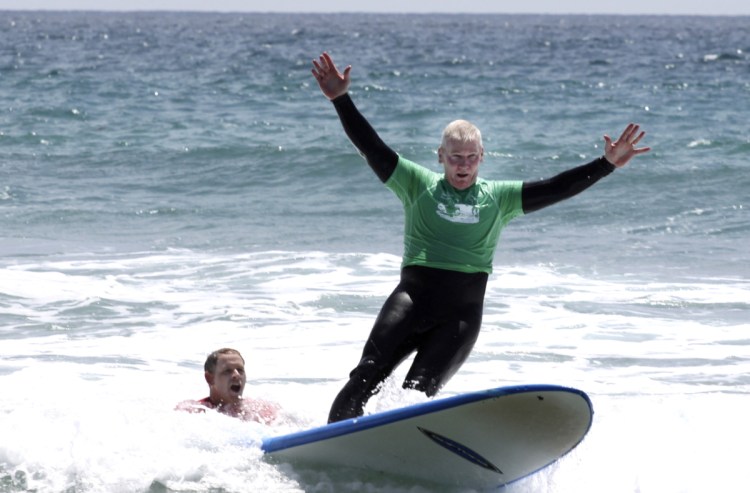In song and prose, surfing has long been celebrated as a way to soothe the mind and invigorate the body. But scientific evidence has been limited.
Now the Navy has embarked on a $1 million research project to determine whether surfing has therapeutic value, especially for military personnel with post-traumatic stress disorder, depression or sleep problems.
Researchers say surfing offers great promise as therapy. It is a challenging exercise in an outdoor environment.People surf individually or in groups. Military surfers who are reluctant to attend traditional group therapy open up about their common experiences when talking to other surfers on the beach.
“Lots of times it becomes therapy under the guise of recreation,” said Helen Metzger, head of the health and wellness department at Naval Medical Center San Diego. “They talk about surfing and then it gets into things that are deeper than that, common experiences, common traumas.”
“For many of our patients, exercise is the best medicine, and exercise in the natural environment is even better,” said James LaMar II, a physician at the Naval Medical Center San Diego and a volunteer in the hospital’s surfing program. “Surfing is a way back to a healthy life, the kind of life they had before they were traumatized.”
The military saw a 65 percent increase in mental-health diagnoses among active-duty personnel between 2001 and 2011, according to a 2013 study done by the Congressional Research Service. Cases of PTSD increased by 650 percent, according to the study, and more than 900,000 individuals were diagnosed with at least one mental disorder during that decade.
The Navy study, led by clinical psychologist Kristen Walter, analyzes questionnaires answered by service members before, during and after a program of surfing one day a week for six weeks.
The first group of 14 active-duty Marines and sailors in the six-week surfing program all had shown signs of major depressive disorder, some with signs of PTSD, researchers said.
To the researchers, the initial results suggest that surfing can lead to a decrease in insomnia and feelings of anxiety, and a decline in an overall negative view of life and other symptoms of depression.
The study, which began last year, will follow up with participants to check on their sleeping patterns and whether improvements in their mental outlook have been long-lasting.
Send questions/comments to the editors.



Success. Please wait for the page to reload. If the page does not reload within 5 seconds, please refresh the page.
Enter your email and password to access comments.
Hi, to comment on stories you must . This profile is in addition to your subscription and website login.
Already have a commenting profile? .
Invalid username/password.
Please check your email to confirm and complete your registration.
Only subscribers are eligible to post comments. Please subscribe or login first for digital access. Here’s why.
Use the form below to reset your password. When you've submitted your account email, we will send an email with a reset code.